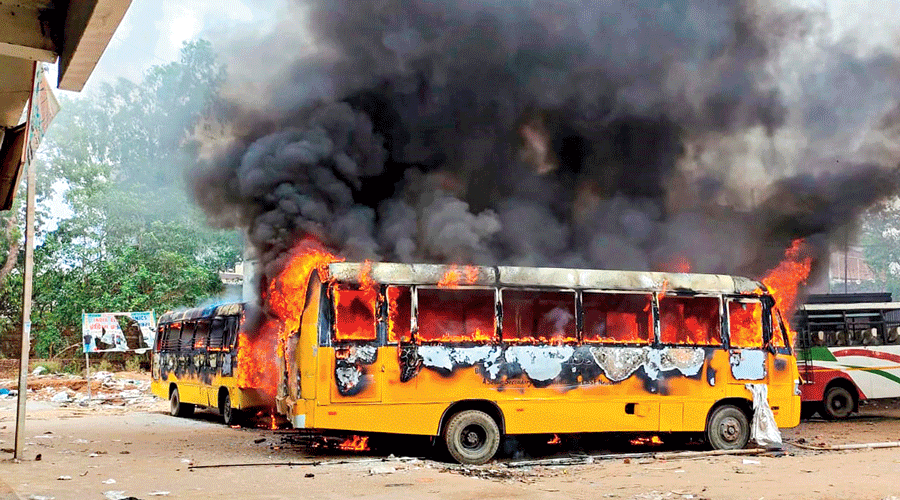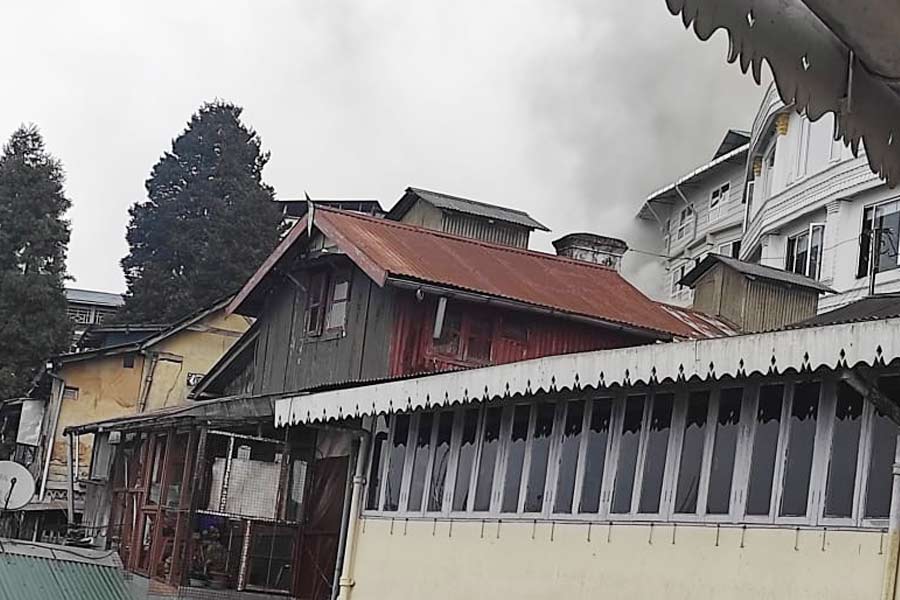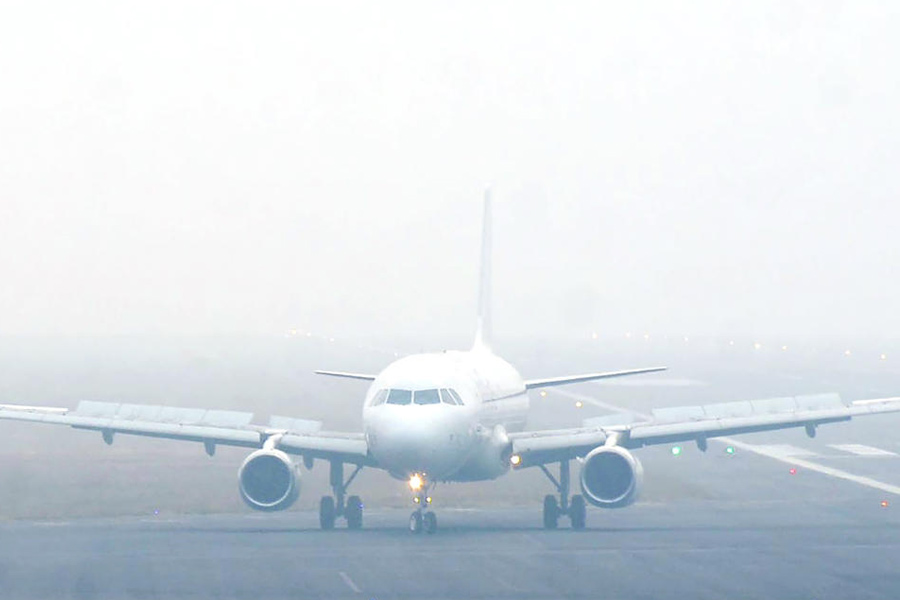Defence minister Rajnath Singh on Friday said the recruitment for the Agnipath scheme would take off in the next few days and asked youths to begin preparations, despite raging protests against the short-term army employment plan.
Rajnath, who was on a two-day visit of Jammu and Kashmir, appeared defiant as he called the scheme a “golden opportunity” for the country’s youths to join the armed forces.
“I appeal to the youth to begin preparations as the recruitment process in the army will start in a few days,” the defence minister said in a series of tweets.
The defence minister addressed a function in Jammu to mark the 200th anniversary of the coronation of Maharaja Gulab Singh, the founder of the autocratic Dogra rule.
Jammu witnessed protests for the second consecutive day on Friday against the scheme, with youths raising slogans against the BJP and the Centre.
Rajnath said the Centre’s Agnipath scheme gave youths a golden opportunity to join the armed forces and serve the country.
“As the recruitment was stalled for the last two years, many youths did not get the opportunity to join the armed forces,” he said in a tweet.
The defence minister, in a move to placate the youths, said the Centre had decided to increase the age limit for recruitment from 21 to 23 years on Narendra Modi’s direction for which he thanked the Prime Minister.
“I heartily thank PM Modi for his regard for youth’s future and sensitivity towards them,” he said, asking youth to take advantage of it.
Rajnath did not mention the scheme during a 20-minute address in Jammu. He instead hit out at Pakistan, saying it had illegally grabbed Pakistan-Occupied Kashmir, Gilgit and Baltistan.
“Even today Pakistan-Occupied Kashmir, Gilgit and Baltistan are under the illegal occupation of Pakistan. These are those areas that Maharaja Gulab Singh joined with Jammu and Kashmir. I am surprised that Pakistan stakes its claim to it. The fact is Pakistan has no local standi in these areas,” he said.
“That is why when the Pakistan Constitution was framed in 1956, 1962, 1972 and 1973, it did not show Gilgit and Baltistan as its part,” he said.











